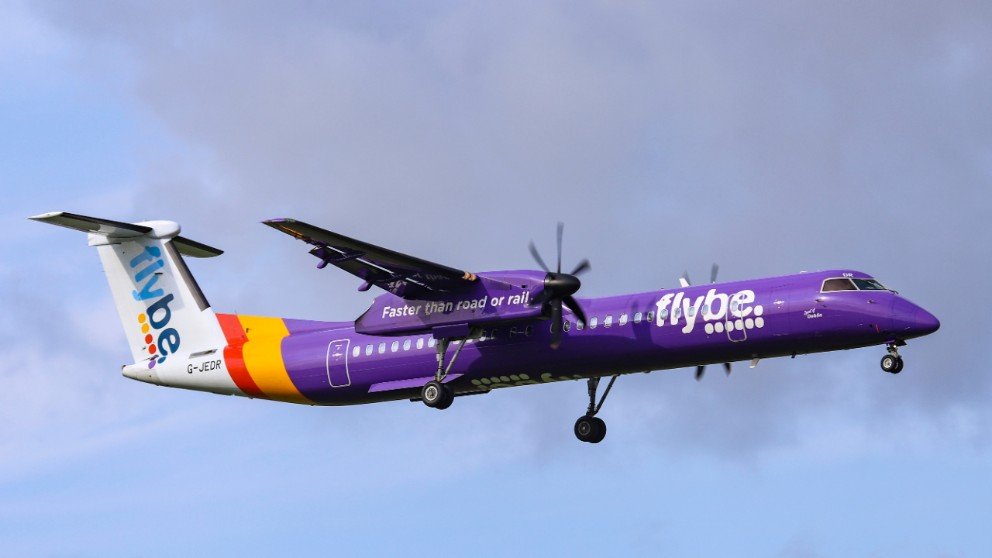
Collapsed British regional airline Flybe is set to return to the skies after administrators confirmed its sale to one of its former owners.
However, Cyrus Capital’s deal doesn’t include the former aircraft but instead the brand, equipment and, crucially, its take-off and landing slots.
It comes months after the rescue deal was first mooted and more than a year since Europe’s then-biggest regional operator ceased operations, becoming the world’s first major aviation casualty of the pandemic.
The revived Flybe said in a statement it plans to fly “many” of its routes, but that would be subject to the lifting of COVID restrictions.
It still has one major hurdle to pass after the UK’s Civil Aviation Authority revoked its operating licence, which could lead it to lose its crucial landing slots at airports if an appeal isn’t successful.
A spokesman for Flybe said that the agreement was a “critical first step in our mission to accomplish the first-ever rescue of an insolvent British airline”.
Kevin Hatton, 76, a former British Airways executive, will become the business’ new chairman.
In early March 2020, the already beleaguered Flybe became arguably the first major airline casualty of the coronavirus pandemic, when the business plunged into administration, resulting in 2,300 job losses.
It was then Europe’s largest regional, carrying 9 million passengers per year and accounting for around 40 per cent of domestic flights in Britain.
It served more than 80 airports including Belfast, Birmingham, Exeter, Manchester and Southampton. Since then, more than a dozen Flybe routes have been taken on by rival Loganair.
In 2019, it was bought by Connect Airways, Cyrus Capital and Stobart Group. A recent report by administrators EY showed it owed unsecured creditors between £600 million and £650 million.
Flybe’s failure came as the pandemic hit Britain, prompting Cyrus and fellow shareholders Virgin Atlantic and Stobart to walk away from further investment in the carrier.
The trio was pushing for an additional £100 million bailout just two months after the UK government approved a rescue package for the carrier that included government tax deferrals, reduction of air passenger duties, alongside a cash injection from private shareholders.
The additional bailout was not granted, causing all three shareholders to wash their hands of the airline.
Rumours first spread in October last year that Cyrus was in talks with administrators about a bid to resuscitate the airline.




